What Is SMS Marketing and Why Is It Important?
SMS marketing is a form of direct marketing that uses text messaging to communicate promotions, alerts, and other information to customers. SMS messages can contain offers, reminders, transactional updates, or personalized content. The channel’s immediacy ensures that recipients often see messages within minutes of delivery.
SMS has become a critical component of modern marketing strategies. Over 6.8 billion people own mobile phones worldwide, including 97% of US consumers. 95% of text messages are read and responded to within 3 minutes of being received, and the average open rate for an SMS campaign is 98%, a whopping five times that of email (20%).
An important thing to understand about SMS is that it requires subscribers to opt in. SMS communication is governed by regional regulations to prevent spam and misuse. SMS marketing solutions allow marketers to manage permissions, while segmenting audiences for precise targeting, and managing messages and campaigns.
Learn more about the MessageWhiz SMS marketing platform
Benefits of SMS Marketing
SMS marketing offers several advantages that make it a valuable channel for businesses aiming for direct, high-impact communication.
- High open rates: SMS messages have open rates as high as 98%, far surpassing email. Most recipients read texts within minutes, increasing the likelihood of engagement.
- Fast delivery and response: Messages are delivered instantly and often prompt quick responses. This makes SMS ideal for flash sales, limited-time offers, or urgent updates.
- Direct and personal: SMS lands directly in the user’s primary communication channel, their mobile phone, making it feel more personal than other channels.
- High engagement: With short, focused content, SMS encourages faster decision-making and higher click-through rates compared to email or social media.
- Cost-effective: Compared to traditional advertising, SMS campaigns are affordable and scalable, especially for small to medium-sized businesses.
- Easy integration: SMS tools integrate easily with CRMs and marketing automation platforms, enabling personalization, segmentation, and automated workflows.
- Reliable reach: Unlike email, SMS doesn’t require internet access. This ensures your message reaches users even in low-connectivity environments.
- Attentive audience: The opt-in requirement promotes trust and ensures you’re engaging only with users who want to hear from your brand.
4 Types of SMS Marketing Campaigns
1. Promotional SMS Campaigns
Promotional SMS campaigns focus on driving sales, generating leads, or increasing attendance at events through targeted offers. Businesses use these campaigns for limited-time discounts, holiday sales, or product launches, aiming to prompt immediate action from recipients. The goal is to increase revenue or participation by delivering value-driven messages straight to customers’ phones. Because SMS has near-instant open rates, promotions reach users before they miss the deadline or event.
These campaigns benefit most from audience segmentation, where different groups receive tailored offers relevant to their past behavior or demographic profile. Marketers often enhance urgency with countdowns or “last chance” reminders within the SMS, maximizing conversion rates. Integration with loyalty programs or exclusive clubs further increases the perceived value for recipients, encouraging customer retention and word-of-mouth referrals.
2. Transactional and Trigger-Based SMS
Transactional and trigger-based SMS messages provide critical information related to customer activities, such as order confirmations, shipping notifications, appointment reminders, or authentication codes. These messages reinforce trust by keeping users informed about their purchases or service status. Automated triggers ensure timely delivery, reducing the risk of missed appointments or failed deliveries.
Unlike promotional texts, transactional SMS is typically exempt from certain marketing restrictions but must still adhere to consent and compliance standards. Trigger-based communications depend heavily on data integration with CRM or eCommerce platforms, as real-time syncing is essential for accurate messaging. Successful use of this method can dramatically reduce support inquiries by proactively addressing common customer needs and reassuring users throughout their journey.
3. Conversational and Two-Way Messaging
Conversational SMS marketing allows recipients to reply and interact directly, transforming traditional one-way alerts into two-way dialogues. Brands use two-way SMS to manage customer support, answer product questions, collect feedback, or conduct polls.
Automated responses, powered by chatbots or intelligent routing, let businesses scale two-way SMS while maintaining efficiency. For example, customers might reply to confirm appointments or get quick answers to order status questions. Two-way communication enables richer data collection and improves customer experience by offering instant, personal support.
4. Drip Campaigns and Customer Journeys
Drip campaigns deliver a sequence of pre-planned SMS messages over time in response to customer actions or timelines. Marketers may set up welcome sequences, onboarding tutorials, or nurture series that unfold automatically based on user behavior. This approach maintains steady engagement without overwhelming the recipient, guiding them down the desired path toward conversion or retention.
Drip sequences rely on behavioral triggers and segmentation, ensuring each user receives messages relevant to their current relationship with the brand. For example, a new subscriber might receive a series of tips and exclusive offers, while a lapsed customer could get win-back incentives. Well-planned drip campaigns maximize the lifetime value of subscribers with minimal manual intervention.
Key Use Cases of SMS Marketing
Here are a few examples of industries that regularly use SMS marketing.
SMS Marketing for Restaurants
Restaurants use SMS marketing for reservation confirmations, waitlist updates, and promotions such as “happy hour” notifications or limited-time deals. These messages drive immediate action: Recipients can book tables, redeem coupons, or learn about menu specials quickly. Restaurants also use SMS for post-visit surveys, gathering timely feedback to improve service. Integration with loyalty programs enables personalized rewards and increases repeat visits.
SMS Marketing for Real Estate
In real estate, SMS marketing accelerates communication between agents, buyers, and sellers. Agents send instant notifications about new listings, open houses, or price changes, keeping interested parties updated without waiting for emails to be read. Prospects can easily request more details or schedule viewings by replying to a message, simplifying the inquiry process and increasing lead conversion rates.
SMS Marketing for Travel
Travel companies rely on SMS to deliver real-time updates and personalized travel experiences. Airlines and booking platforms use SMS to confirm reservations, send boarding passes, and notify passengers about flight delays or gate changes. Hotels use it for booking confirmations, check-in instructions, and concierge services.
SMS is also useful for upselling add-ons like travel insurance, upgrades, or tours close to departure. Post-trip, companies can use SMS to request reviews or promote loyalty programs. The immediacy and high visibility of SMS help reduce travel-related anxiety and improve overall customer satisfaction.
SMS Marketing for eCommerce
eCommerce businesses use SMS for abandoned cart reminders, shipping alerts, flash sale promotions, and post-delivery follow-ups. SMS marketing drives conversions by reminding shoppers to complete their purchases or take advantage of limited-time discounts. Shipping notifications keep buyers informed about order status, building trust and reducing customer service inquiries.
SMS Marketing for Financial Services and Banking
In financial services and banking, SMS marketing is used for fraud alerts, transaction summaries, appointment reminders, and promotional campaigns for new products. Security is critical in this industry; SMS enables two-factor authentication and instant notifications about unusual account activity, preventing unauthorized transactions. Customers value real-time updates for balance alerts, payment due dates, and loan application status.
Learn more in our detailed guide to SMS marketing services
SMS Marketing for Healthcare and Medical Services
Healthcare providers use SMS for appointment reminders, schedule changes, vaccination updates, and medication adherence prompts. Reminders reduce the rate of missed appointments, which helps clinics operate more efficiently and improves patient outcomes. With opt-in consent, clinics also send educational material or wellness tips, personalizing the patient experience.
SMS also supports critical communication during emergencies, such as disseminating important health notices rapidly. Patient satisfaction surveys or feedback requests sent via SMS can quickly identify areas for improvement. All healthcare-related messaging must follow data privacy laws like HIPAA in the US.
SMS Marketing for Gaming
Gaming companies use SMS to boost player engagement, retention, and monetization. Typical use cases include notifying players about game updates, new content releases, limited-time events, or exclusive in-game offers. By delivering time-sensitive promotions directly to users’ phones, SMS drives faster participation and increased in-game spending.
SMS also plays a role in account security, offering two-factor authentication and login alerts. For community engagement, studios use SMS to promote tournaments, beta test invites, or collect feedback via polls. Personalization, such as tailoring offers based on user behavior or level progression, helps sustain long-term player loyalty.
SMS Marketing Strategies with Examples
Personalized Messaging
Personalized SMS messaging targets individuals based on their preferences, behaviors, or demographics. By using customer data such as purchase history, first names, or past interactions, brands craft messages that feel relevant and timely. Effective personalization avoids overstepping privacy boundaries and ensures each message provides clear value.
Examples of SMS messages:
- Hi Maya, your favorite serum is back in stock! Grab it now before it sells out again: [link]
- James, we noticed you loved our fall boots. Here’s 15% off your next pair: [link]
Time-Sensitive Offers
Time-sensitive offers leverage SMS’s immediacy by promoting deals or events that expire soon. Flash sales, limited-quantity promotions, or one-day event reminders can prompt quick action from recipients who might otherwise delay decisions. By using urgent language (“Ends tonight!” or “Last chance!”), marketers increase perceived value and motivate faster responses.
Examples of SMS messages:
- Flash Sale: 30% off sitewide ends at midnight! Don’t miss out—shop now: [link]
- 24-hour deal! Buy 1, get 1 free on all tees. Offer expires tonight: [link]
Exclusive Member-Only Deals
Brands often reward loyalty by sending exclusive offers to members or VIP customers via SMS. These deals can include early access to sales, hidden discounts, or invitations to special events. Exclusivity increases perceived value, as recipients feel their loyalty is recognized and rewarded in ways unavailable to the general public.
Examples of SMS messages:
- VIP Exclusive: Early access to our holiday sale starts now. Use code VIP25: [link]
- Just for members—$20 off your next order over $100. Thanks for being part of the club! [link]
Cart Abandonment Messages
Cart abandonment messages target users who start but do not finish the checkout process in eCommerce platforms. A well-timed SMS reminder nudges shoppers to complete their purchase. Messages may include a direct link back to the abandoned cart, a limited-time discount, or a prompt to ask questions, addressing potential reasons for abandonment.
Examples of SMS messages:
- Still thinking it over? Your cart’s waiting—complete your order now & get 10% off: [link]
- You left something behind! Checkout now before it sells out: [link]
Event Promotions (Online or Real-World Events)
SMS marketing helps boost attendance at events by delivering timely updates, exclusive invites, and last-minute reminders. Marketers use SMS to notify subscribers about upcoming webinars, product demos, in-store activations, or industry conferences. Because messages are seen almost instantly, they’re useful for driving sign-ups, managing RSVP confirmations, and sending directions or schedule changes.
Examples of SMS messages:
- You’re invited! Join our exclusive Fall Preview Event this Friday at 6 PM. RSVP now: [link]
- Reminder: Webinar “Scaling with AI” starts in 1 hour. Click here to join: [link]
Product Launch Announcements
Product launch SMS campaigns create buzz and drive early interest by alerting subscribers the moment a new product goes live. These messages often include a call to action, like visiting a product page or claiming an early access link, and can be personalized based on past purchase behavior. SMS ensures that loyal customers or early adopters don’t miss out during high-demand releases or limited-stock drops.
Examples of SMS messages:
- It’s here! Our new Noise-Canceling Earbuds just dropped. Shop now before they sell out: [link]
- Meet your new favorite moisturizer. Just launched today. Tap to try it first: [link]
Customer Feedback and Surveys
Gathering customer feedback via SMS is effective due to the high response rates of the channel. Short, focused surveys or Net Promoter Score (NPS) requests can be sent immediately after a transaction or interaction, capturing impressions while they’re still fresh. Customers can reply to the message or follow a link to a quick survey, helping brands collect actionable insights.
Examples of SMS messages:
- Thanks for your purchase! How did we do? Tap to rate your experience: [link]
- Hi Emily, we’d love your feedback on your recent visit. Quick 2-question survey here: [link]
9 Best Practices for SMS Marketing Success
To maximize results and avoid common pitfalls, follow these SMS marketing best practices:
- Create urgency: Use time-sensitive language to drive faster action. If a promotion ends soon, say so clearly: “Ends tonight” or “Only 3 hours left.” Fear of missing out (FOMO) is a strong motivator.
- Send at the right time: Timing affects performance. Weekdays between 9 AM–12 PM and 5 PM–9 PM are typically best for reaching users when they’re on their phones and more likely to shop.
- Lead with the value: You have limited space, so put the offer or benefit up front. For example, say “30% Off All Jackets” in the first few words, not buried after product names or descriptions. Clear, immediate value grabs attention and improves click-through rates.
- Use personalization: Addressing recipients by name increases engagement. Most SMS platforms allow dynamic fields, so messages feel more personal, like they’re from a friend, not a brand.
- Keep messages short and clear: Stay within the 160-character limit and avoid unnecessary details. Focus on one clear message or call to action. Overloading the text with multiple offers or instructions can confuse recipients and reduce response rates.
- Segment your audience: Don’t send the same message to everyone. Use segmentation based on purchase history, behavior, location, or engagement level to tailor messages. Relevant messages perform better and help maintain subscriber trust.
- A/B test message types: Test different SMS variants with small audience segments. Try different discount levels or approaches. Some users respond better to a reminder, while others react to a 20% offer. A/B testing helps you find the most effective strategy before scaling.
- Coordinate with email: Use SMS and email together. Email provides rich detail and visuals, while SMS delivers timely nudges. If a customer doesn’t open an email, an SMS follow-up 24 hours later can re-engage them where they’re more likely to see it.
- Respect compliance rules: Always follow opt-out regulations. Your SMS platform should manage unsubscribe mechanisms, like “Reply STOP” for U.S. and Canada or unsubscribe links for other countries. Ensure these features are configured properly to avoid legal issues.
Advanced Technologies in SMS Marketing
SMS marketing has rapidly evolved in the past few years. Here are a few technologies that can help you take your campaigns to the next level.
RCS (Rich Communication Services) and Multimedia Texting
RCS (Rich Communication Services) enhances traditional SMS with features like images, videos, buttons, and interactive carousels. RCS messages support branding, richer content, and in-message actions, such as booking appointments or adding events to a calendar, without requiring an app. This next-generation channel blurs the line between SMS and mobile apps, offering deeper engagement and a better user experience.
While carrier and device compatibility remains a limitation, adoption of RCS is growing. Marketers taking advantage of RCS can create visually appealing, interactive campaigns that stand out from standard text messages. RCS also supports read receipts and typing indicators, giving brands greater insight into user behavior during campaign execution.
Generative AI in SMS Campaigns
Generative AI enables marketers to automatically create SMS content that is personalized, context-aware, and optimized for engagement. By analyzing customer data, such as purchase history, browsing behavior, and past interactions, generative models can craft targeted message variants at scale. This reduces reliance on pre-written templates and allows for dynamic, high-volume personalization that feels human and relevant.
Generative AI also supports rapid A/B testing by producing multiple message variations, each tailored to specific audience segments. These variations can be tested in real time, with AI learning which phrasing, tone, or offer yields the best response. Over time, campaigns become more refined without manual rewriting or editing, improving both efficiency and conversion rates.
Conversational AI and Chatbots over SMS
Conversational AI and SMS chatbots enable real-time, two-way communication at scale. Customers can interact with automated agents to ask questions, resolve issues, or receive product recommendations, all via SMS. These AI-powered conversations mimic human interactions, reducing the burden on traditional customer support teams and driving efficiencies for businesses.
Chatbots can handle appointment scheduling, order status updates, or feedback surveys without human intervention. They’re available 24/7, delivering fast responses and improving satisfaction. Integrating conversational AI with SMS campaigns lets brands collect data, qualify leads, and nurture relationships, all while providing a seamless, interactive user experience on mobile devices.
Predictive Timing and Smart Send Algorithms
Predictive timing leverages user behavior and engagement history to determine optimal send times for each recipient. Smart send algorithms analyze when subscribers have historically opened or interacted with messages, then schedule future campaigns to arrive at those moments for maximum impact. This increases open and response rates, improving overall campaign effectiveness.
By personalizing send times, marketers reduce the risk of messages being missed or ignored. These algorithms continuously refine predictions based on real-world results, making each campaign smarter than the last. Predictive timing works especially well for international or distributed audiences operating in different time zones, helping brands maximize engagement without manual effort.
Important Things to Know Before Starting an SMS Marketing Campaign
Consent and Compliance
SMS marketing operates on explicit consent. Regulations like the Telephone Consumer Protection Act (TCPA) in the US and GDPR in Europe require businesses to obtain clear, unambiguous permission from recipients before sending marketing text messages. Typically, customers opt in by texting a shortcode or checking a box on a form, confirming their interest.
Maintaining a clean opt-in process also benefits businesses by fostering trust and improving deliverability rates. Marketers must provide easy opt-out options, such as responding with keywords like “STOP,” so users can revoke consent at any time. Compliance with opt-in and opt-out processes is enforced strictly, and violations can lead to hefty fines. Ensuring ethical consent practices forms the backbone of successful SMS marketing operations.
SMS marketing compliance extends beyond just obtaining consent. Messages must include required information, such as the identity of the sender and clear instructions for opting out. Different countries enforce varying rules on what constitutes marketing versus transactional content, so understanding regional laws is essential. Non-compliance can result in blocked campaigns, loss of sending privileges, or significant fines.
Length Limitations and Timing
Content in SMS marketing must be concise and relevant due to the 160-character limitation (although, in principle it is possible to send longer messages, with each 160-character increment billed as a separate message). Marketers need to distill messages to essential information, often including a clear call-to-action (CTA) such as a link, coupon code, or reminder to reply. Personalization, using the recipient’s name or referencing previous interactions, can increase relevance and effectiveness.
Timing also matters: Messages sent at inappropriate hours can irritate users. Since space is limited, URL shorteners or trackable links are commonly used to direct users to landing pages or offers.
Performance Tracking
Performance tracking is integral to assessing SMS marketing effectiveness. Marketers use metrics like delivery rates, open rates, click-through rates, response rates, and unsubscribe rates to gauge campaign impact. Unlike email, SMS doesn’t naturally support tracking opens, but link shorteners and UTM parameters provide meaningful insights into recipient behavior, such as which offers drove the most conversions.
Analysis tools integrated into SMS platforms let marketers A/B test message copy, sending times, and audience segments to optimize outcomes. Tracking performance over time reveals trends in engagement, guiding future campaigns and budget allocation. Real-time analytics are crucial for time-sensitive campaigns, enabling quick adjustments based on user response.
SMS vs. Other Direct Marketing Channels
SMS vs. Email Marketing
SMS excels in urgent, time-sensitive cases: Most recipients open text messages almost instantly, while emails may be overlooked for hours or days.
Email accommodates longer, more detailed content and is suited for newsletters, product announcements, or editorial campaigns. SMS’s brevity and immediacy make it ideal for reminders, promos, or alerts requiring quick action.
Both channels require consent and support personalization, but email often faces higher spam filtering and lower open rates. However, emails are less intrusive and allow rich media, attachments, and extensive formatting. Marketers often use SMS to follow up on important emails, driving higher response rates through combined channel strategies.
SMS vs. WhatsApp vs. Push Notifications
SMS works universally across all phones, even without internet access, ensuring broad reach. Push notifications, meanwhile, require recipients to have a brand’s mobile app installed and notifications enabled—typically limiting reach to the most engaged users.
WhatsApp messaging offers multimedia and two-way communication but generally demands opt-in through installation and contact sharing.
Push notifications allow richer, app-integrated experiences, while WhatsApp supports encrypted chats and extensive branding. However, WhatsApp and push notifications are platform-dependent, limiting cross-device reach compared to traditional SMS. SMS remains the most reliable choice for critical alerts or when customer data is limited to a phone number alone.
SMS Marketing with MessageWhiz
MessageWhiz helps businesses turn every text message into measurable engagement. Built by MMDSmart, the platform simplifies SMS marketing by managing global compliance, optimizing delivery, and connecting seamlessly with CRMs, marketing platforms, and automation tools. From one intuitive dashboard, marketers can send personalized offers, alerts, and reminders that reach customers wherever they are.
With advanced routing intelligence, real-time analytics, and built-in verification tools, MessageWhiz ensures messages are delivered to the right audience at the right moment. AI-driven features help marketers identify optimal send times, automate campaigns, and measure performance beyond click-through rates, tracking real conversions, ROI, and customer lifetime value.
MessageWhiz also supports omnichannel orchestration, combining SMS with WhatsApp, RCS, Viber, and email to create seamless cross-channel journeys. Whether you’re running a flash sale, confirming bookings, or delivering transactional updates, MessageWhiz gives you the reliability of SMS plus the personalization of modern marketing automation.
Learn more about the power of SMS with MessageWhiz
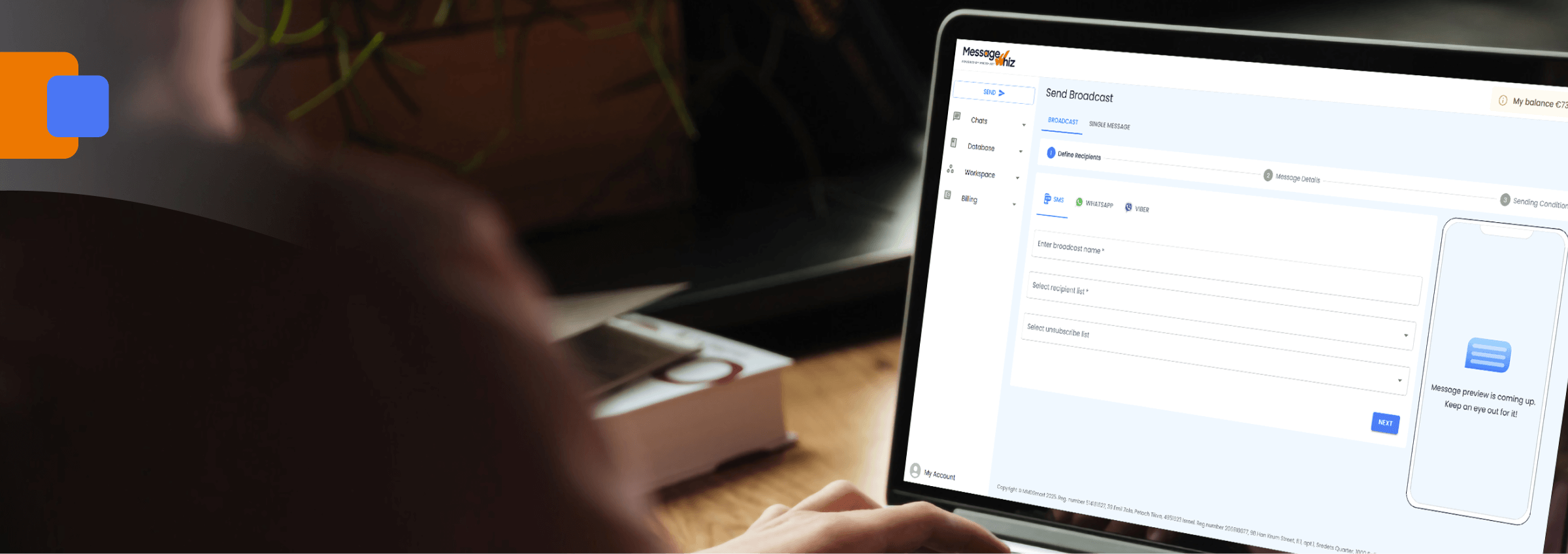

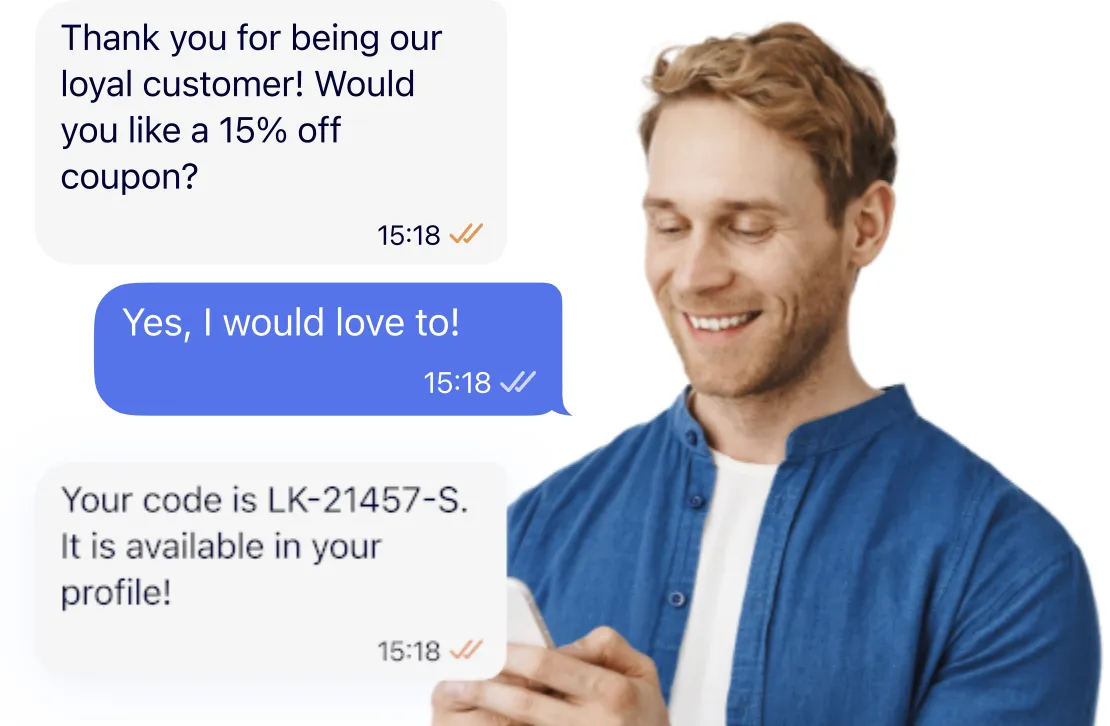
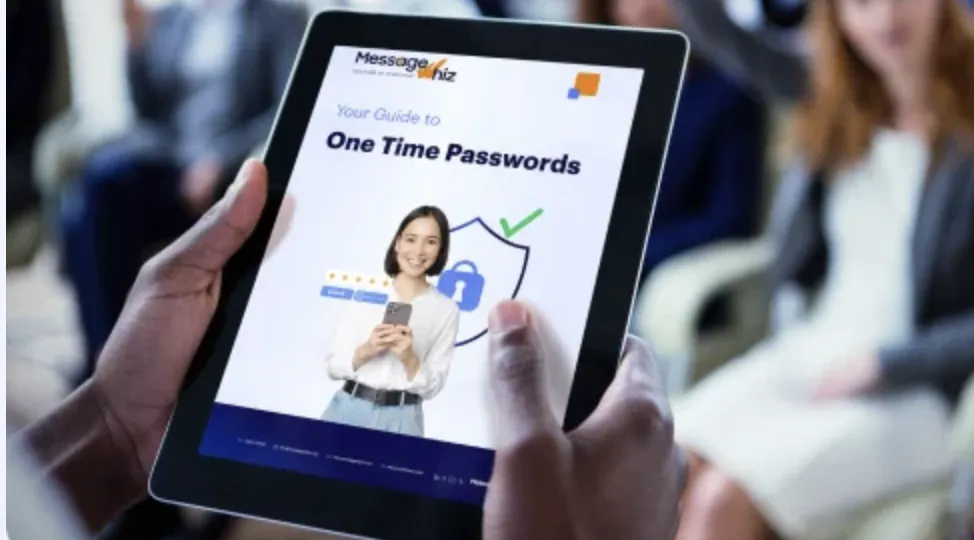
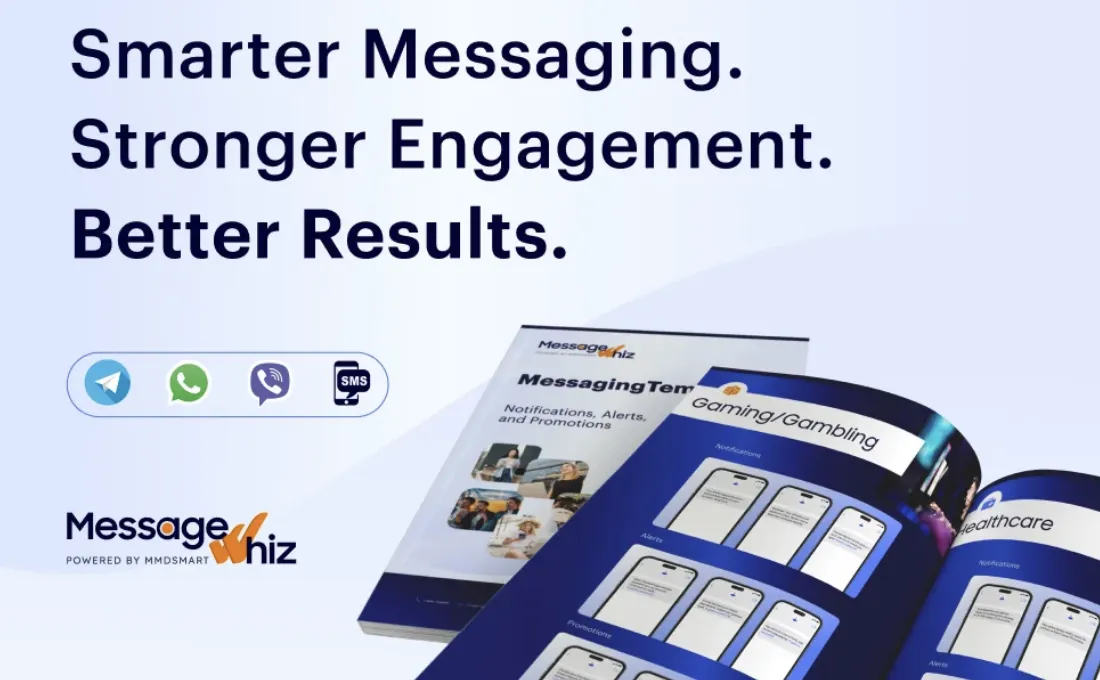
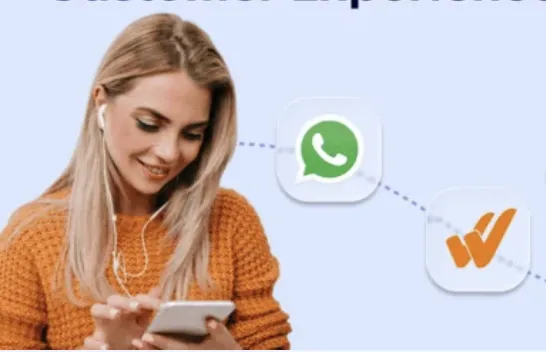
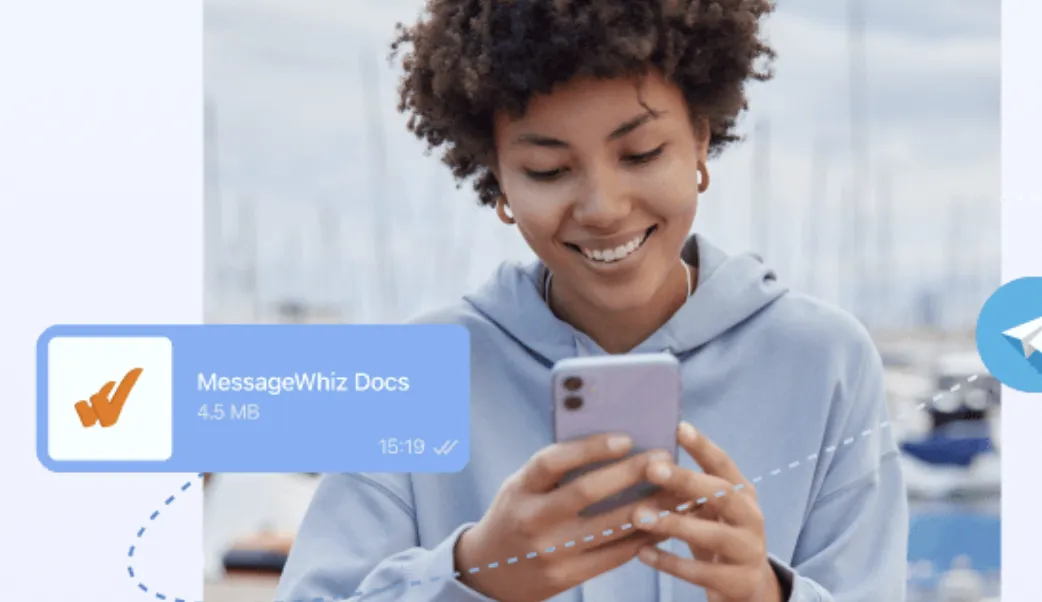
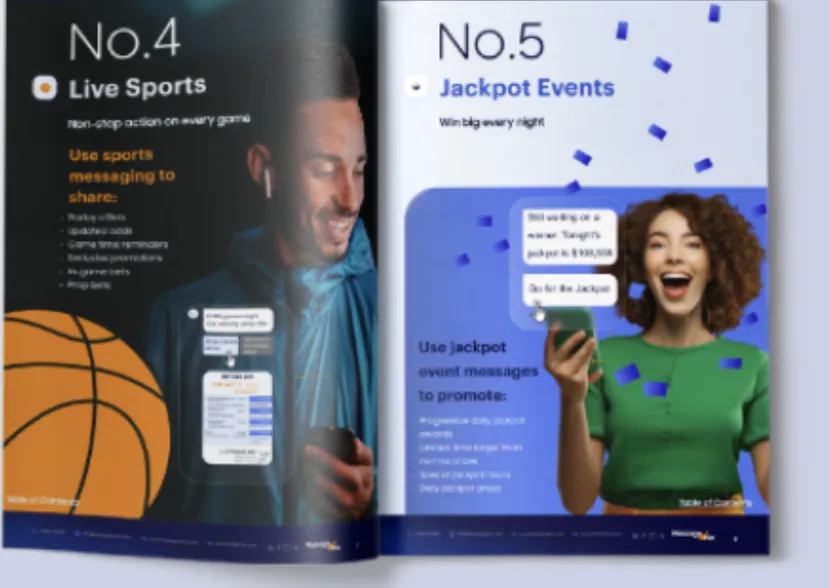
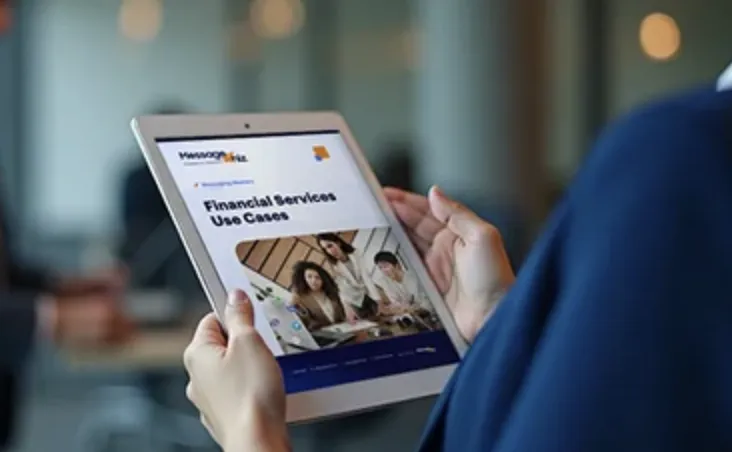
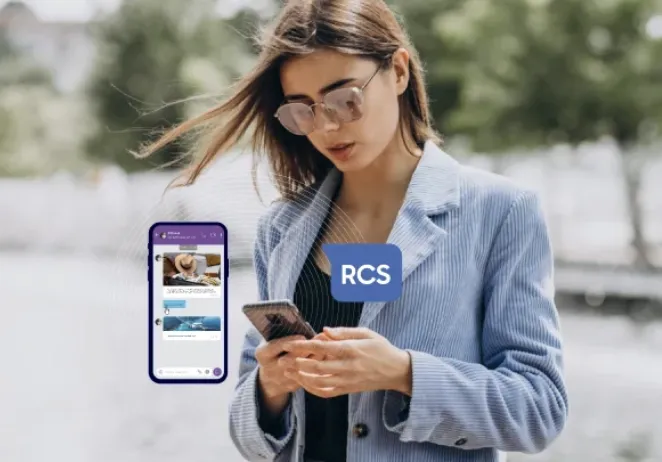
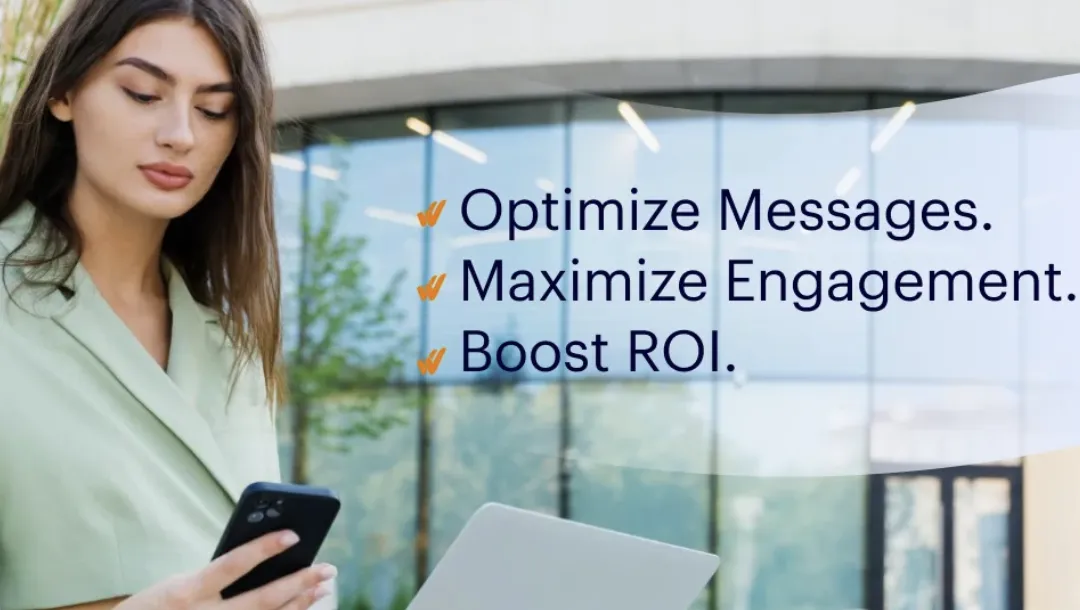




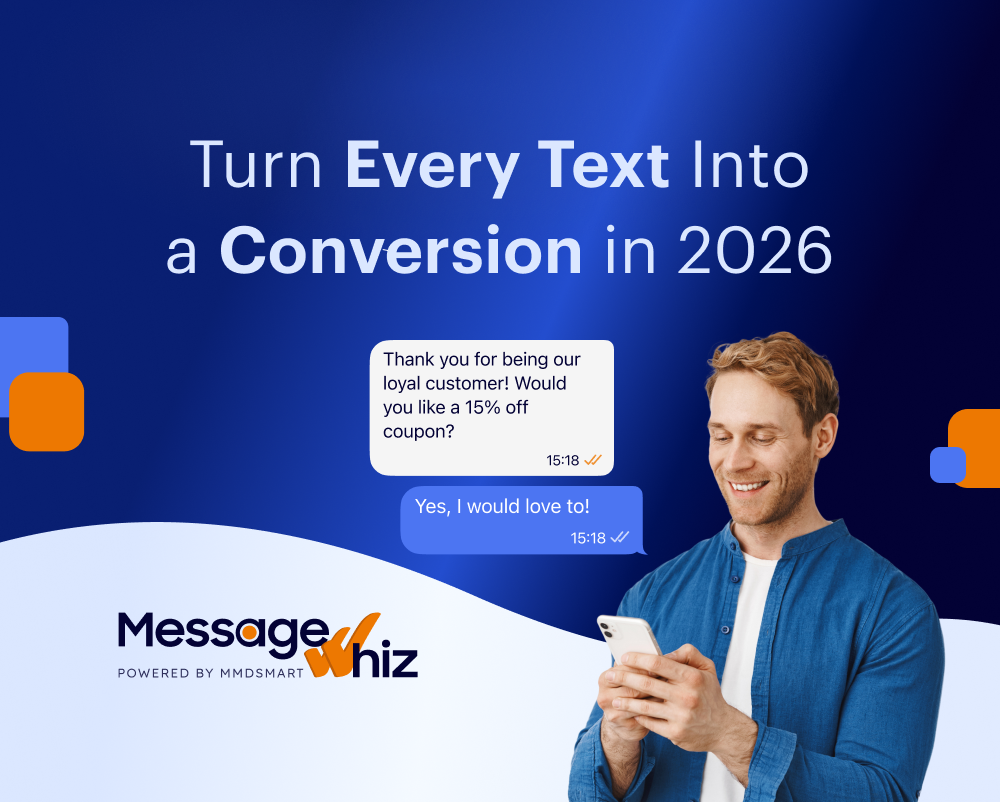

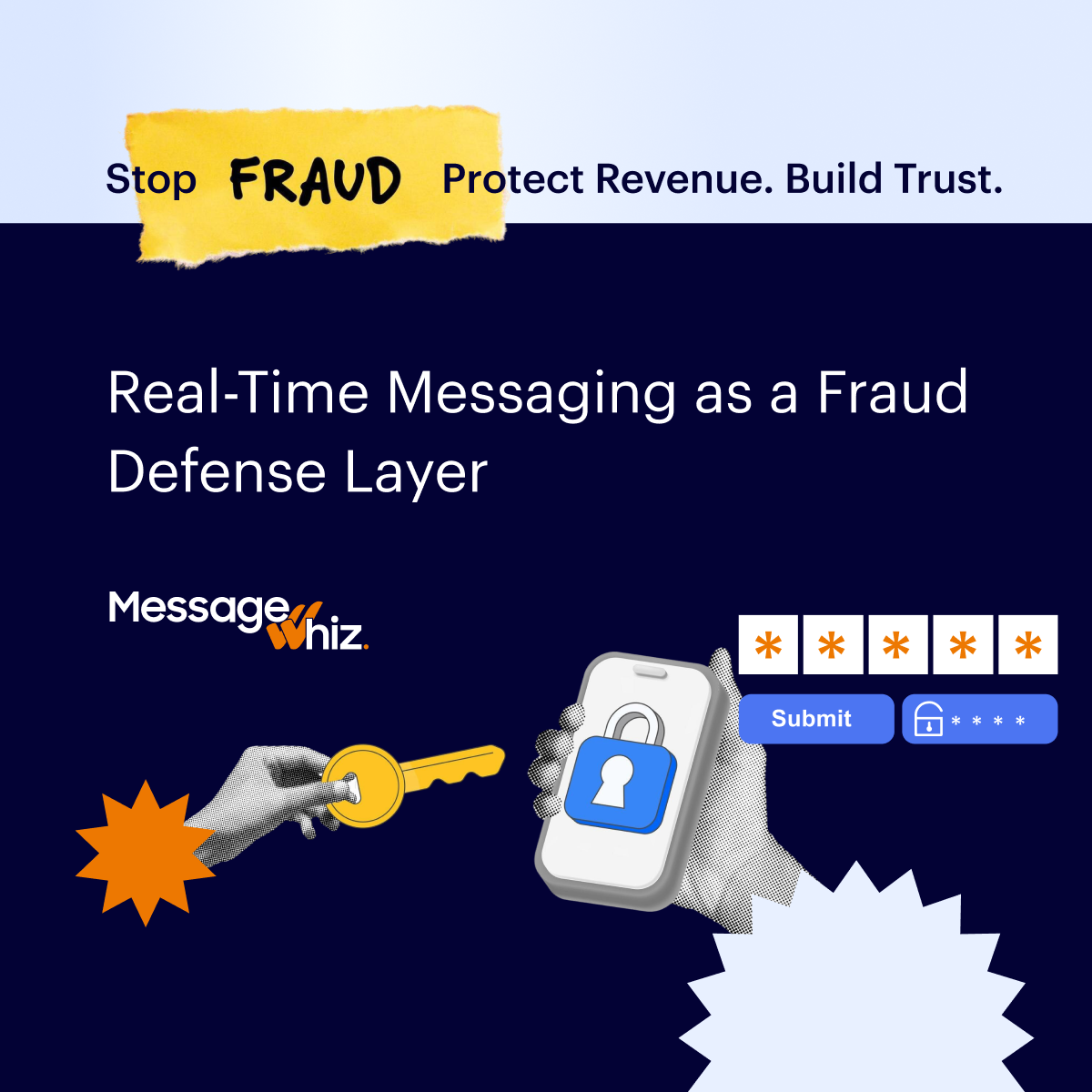


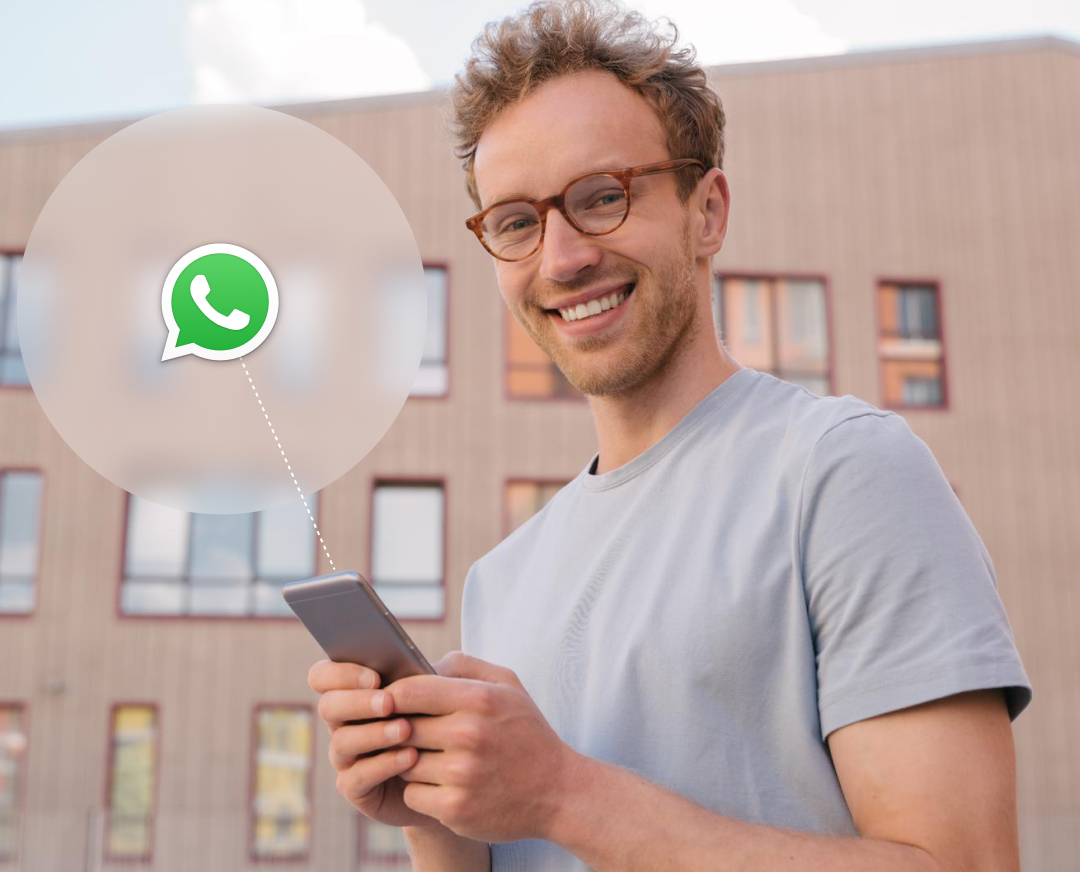
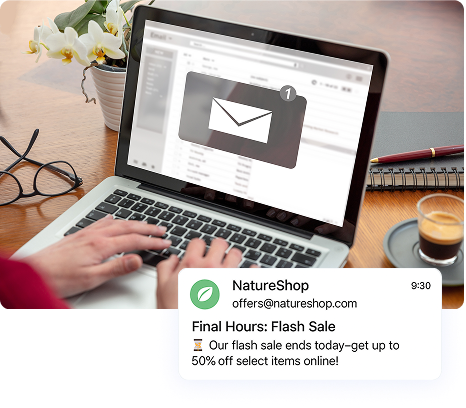
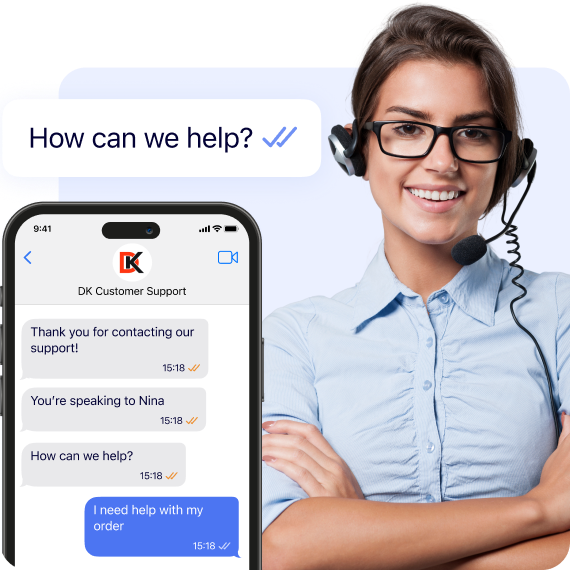


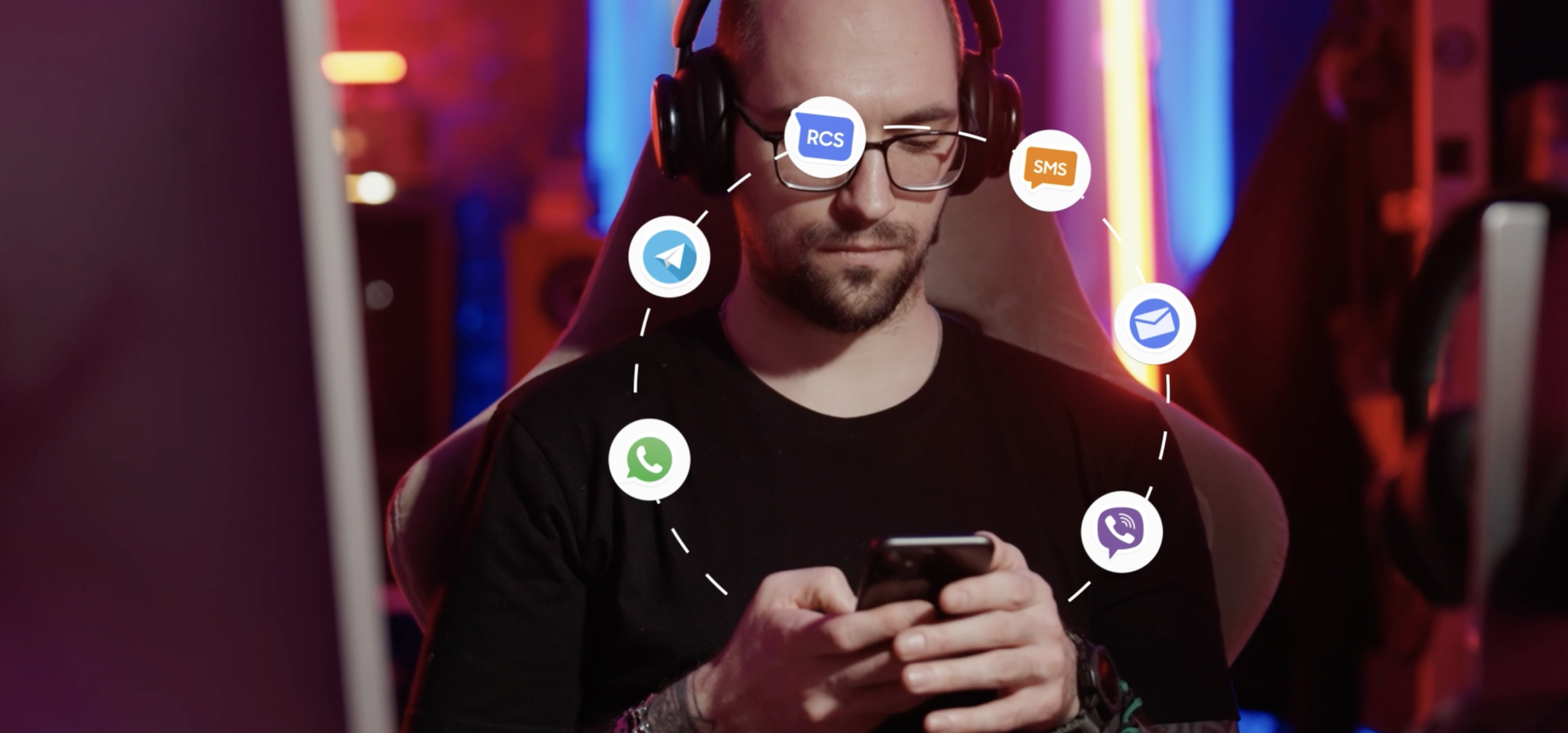

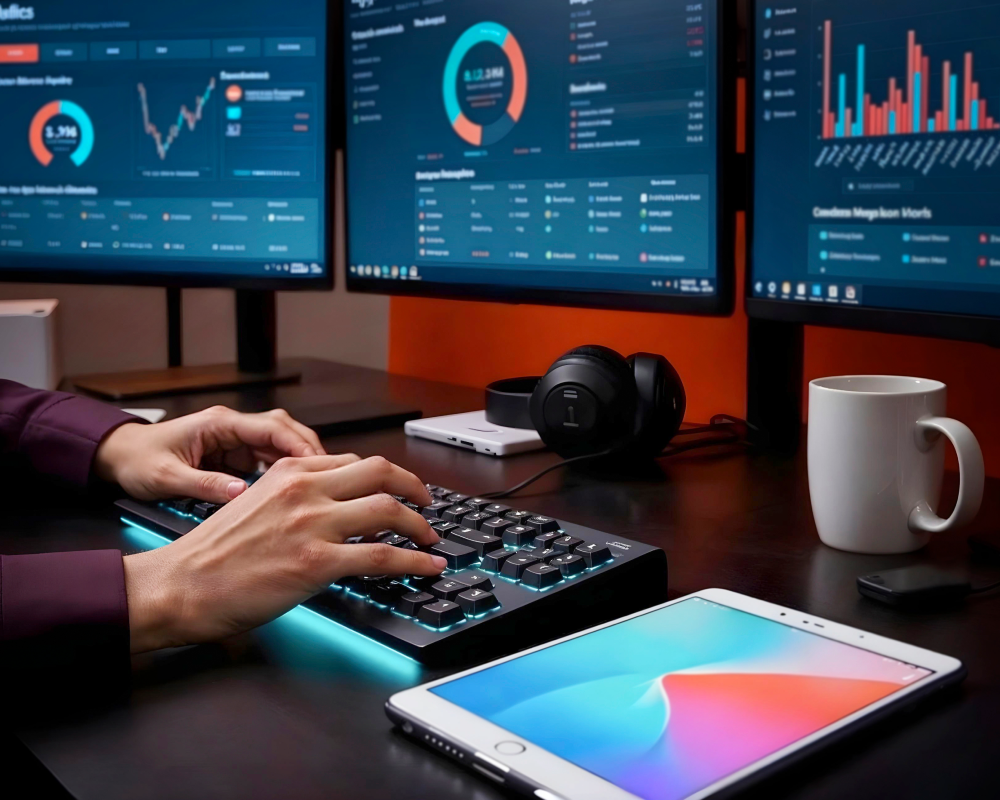
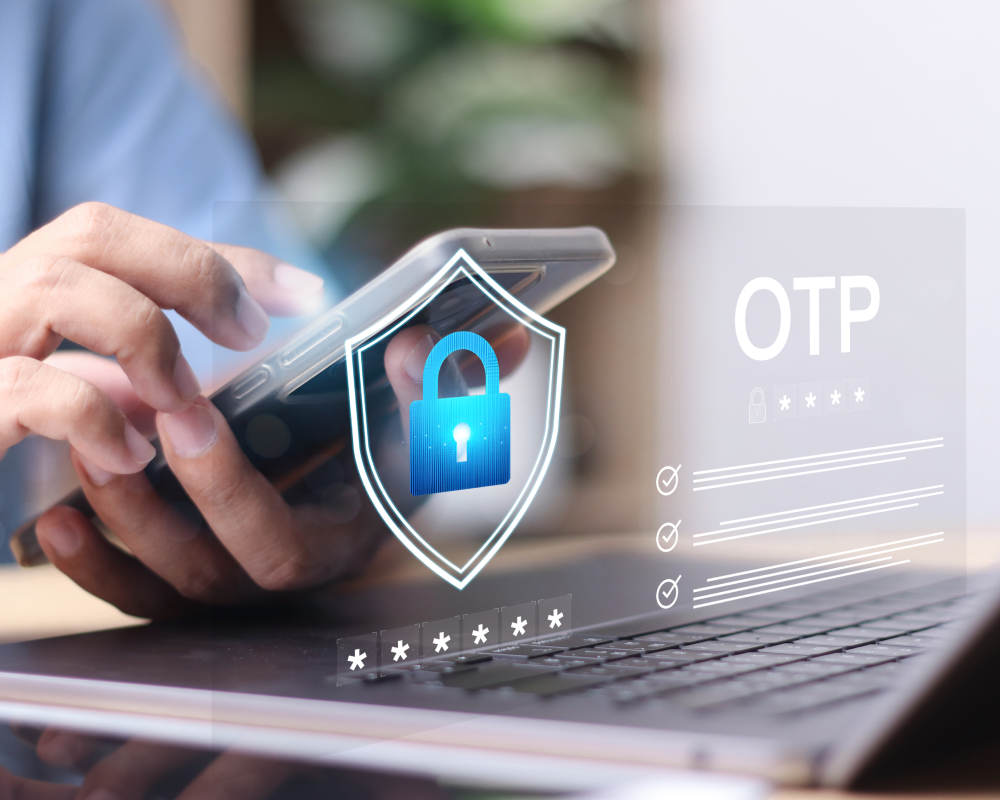

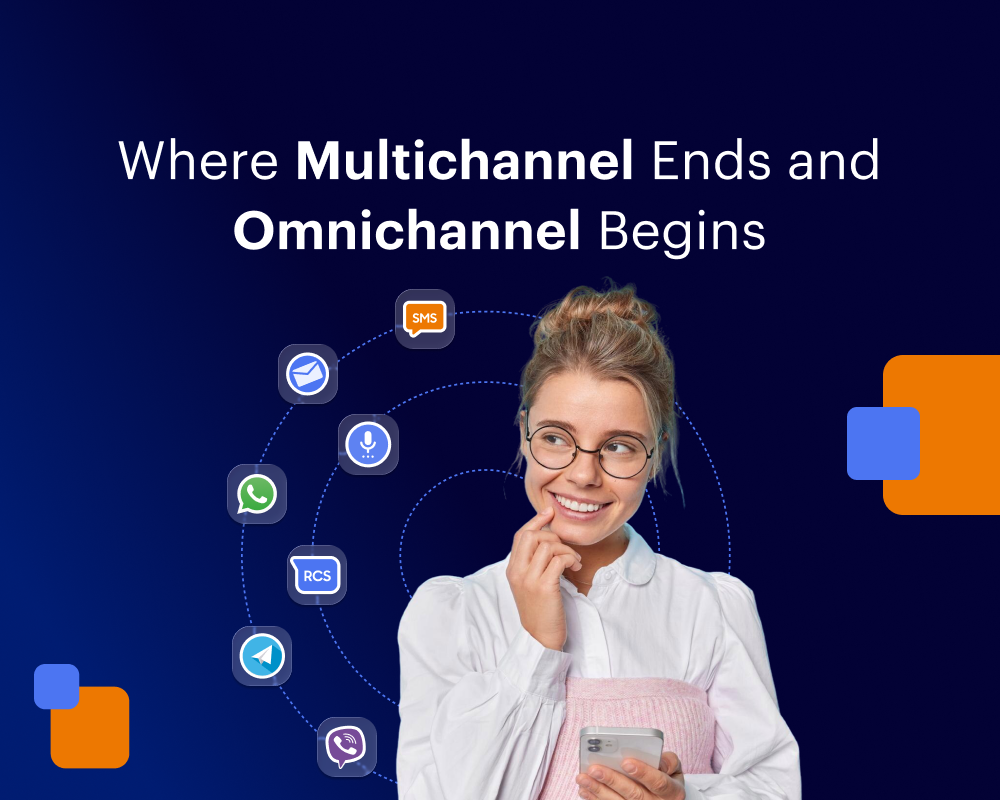
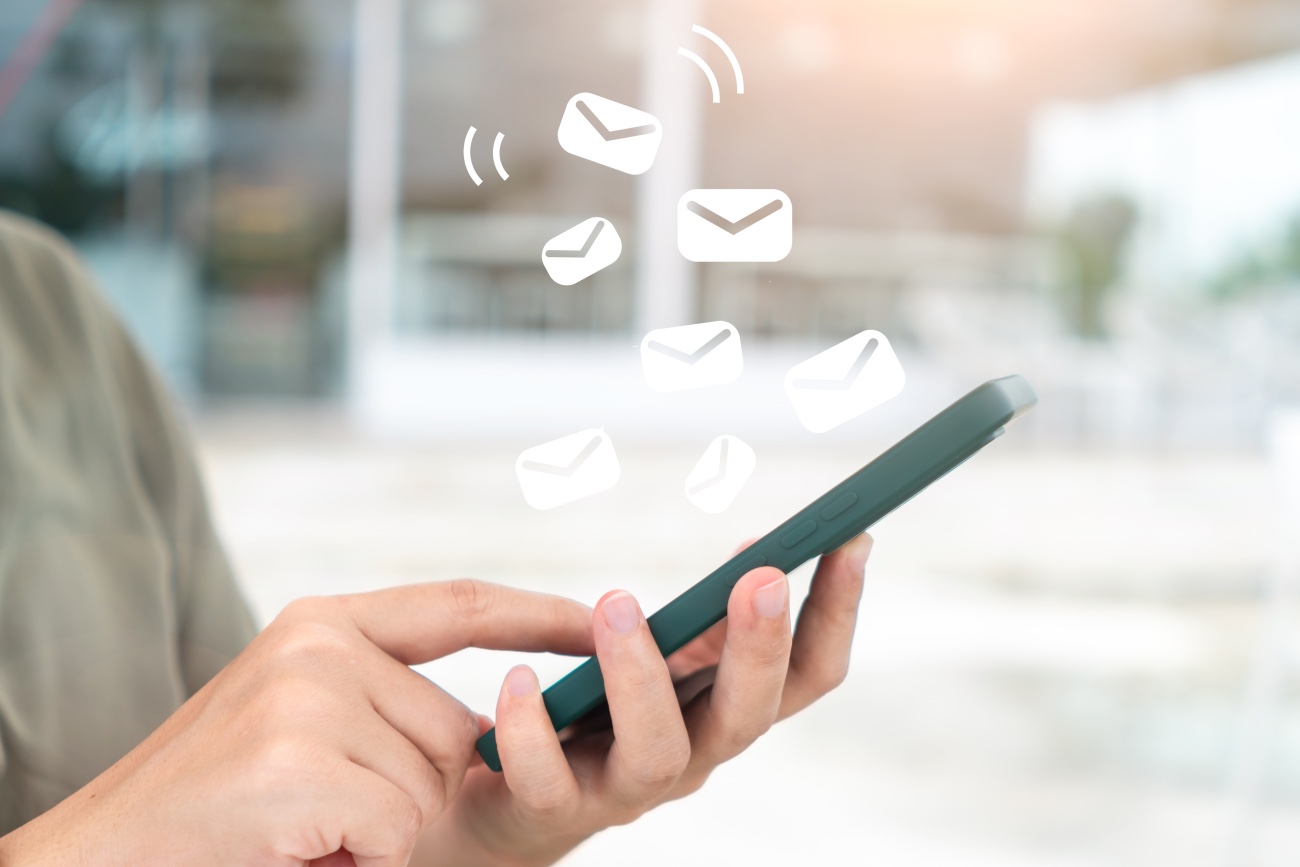
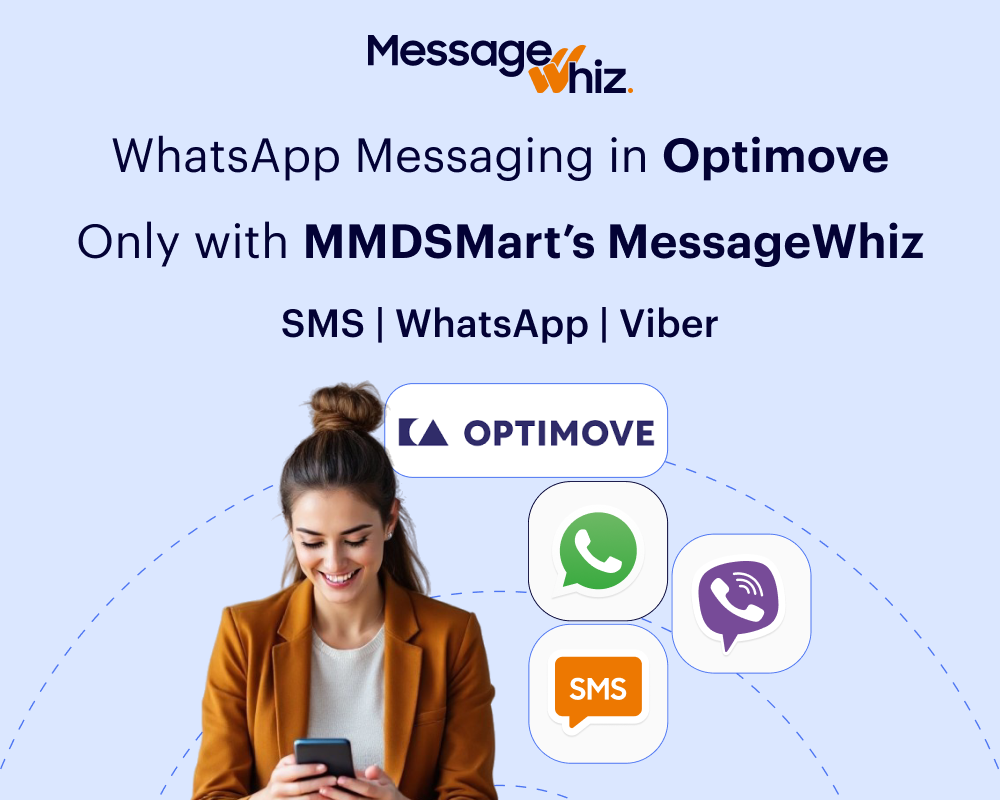
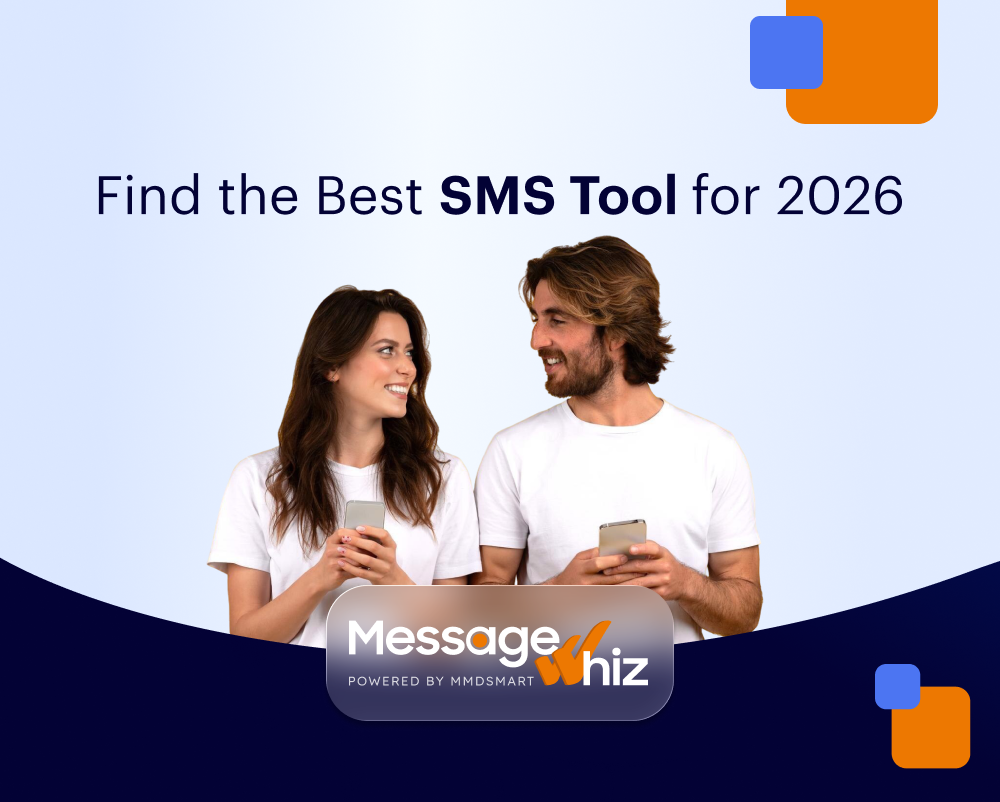
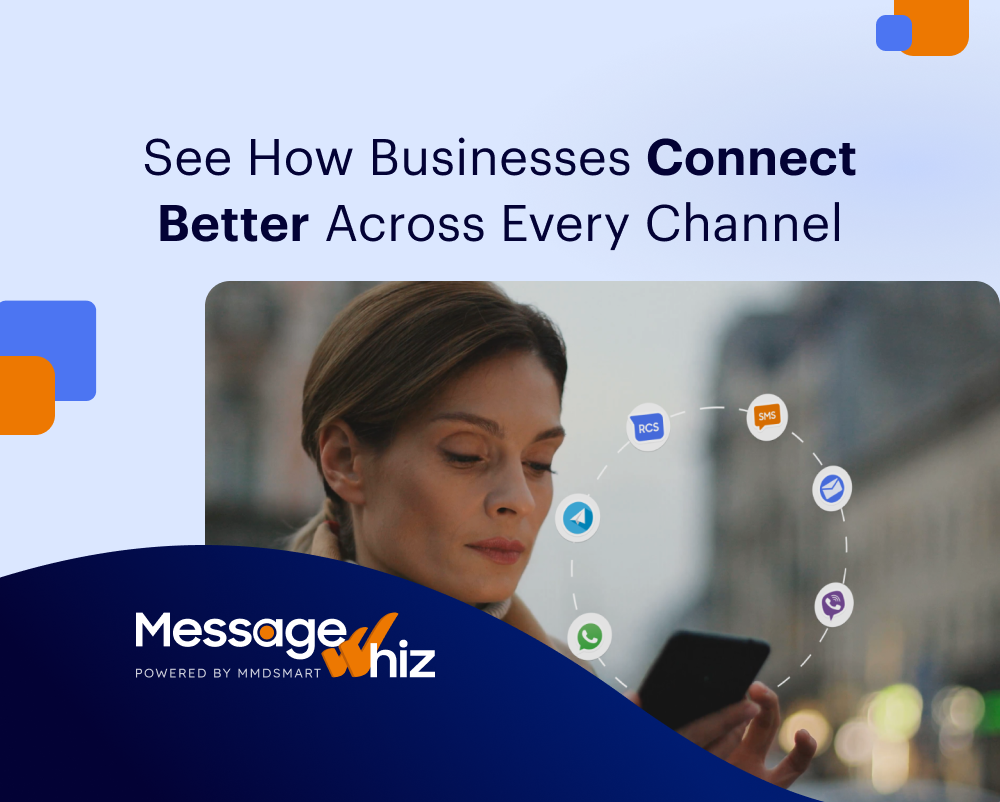
![10 SMS Marketing Services Compared [2026 Guide] | Message Whiz blog image](https://messagewhiz.com/wp-content/uploads/2025/11/smiling-woman-holding-smartphone-remixed-media-2.jpg)